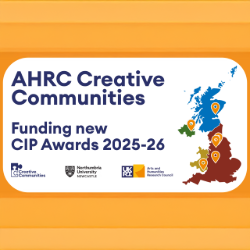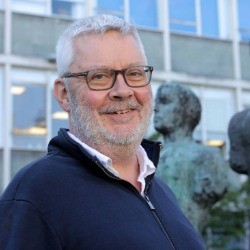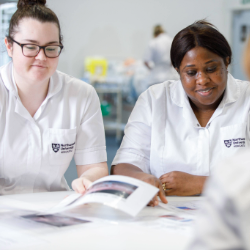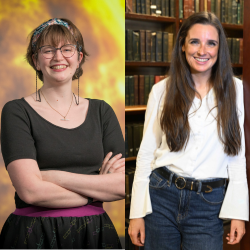-
Study
-
Undergraduate
- UCAS Clearing & Confirmation 2025
- Application Guides
- UCAS Exhibitions
- Foundation Years
- School & College Outreach
- Information for Parents
-
Postgraduate
- Application Guide
- Postgraduate Research Degrees
- Flexible Learning
- Change Direction
- Register your Interest
-
Student Life
- Students' Union
- The Hub - Student Blog
- Accommodation
- Northumbria Sport
- Support for Students
-
Learning Experience
- Real-World Learning
- Research-enriched learning
- Graduate Futures
- The Business Clinic
- Study Abroad
-
-
International
International
Northumbria’s global footprint touches every continent across the world, through our global partnerships across 17 institutions in 10 countries, to our 277,000 strong alumni community and 150 recruitment partners – we prepare our students for the challenges of tomorrow. Discover more about how to join Northumbria’s global family or our partnerships.
View our Global Footprint-
Quick Links
- Course Search
- Undergraduate Study
- Postgraduate Study
- Information for Parents
- London Campus
- Northumbria Pathway
- Cost of Living
- Sign up for Information
-
International Students
- Information for International Students
- International Events
- Application Guide
- Entry Requirements and Education Country Agents
- Global Offices
- English Requirements
- English Language Centre
- International student support
- Cost of Living
-
International Fees and Funding
- International Undergraduate Fees
- International Undergraduate Funding
- International Masters Fees
- International Masters Funding
- International Postgraduate Research Fees
- International Postgraduate Research Funding
-
International Partners
- Agent and Representatives Network
- Global Partnerships
- Global Community
-
International Mobility
- Study Abroad
- Information for Incoming Exchange Students
-
-
Business
Business
The world is changing faster than ever before. The future is there to be won by organisations who find ways to turn today's possibilities into tomorrows competitive edge. In a connected world, collaboration can be the key to success.
More on our Business Services -
Research
Research
Northumbria is a research-rich, business-focused, professional university with a global reputation for academic quality. We conduct ground-breaking research that is responsive to the science & technology, health & well being, economic and social and arts & cultural needs for the communities
Discover more about our Research-
Quick Links
- Research Peaks of Excellence
- Academic Departments
- Research Staff
- Postgraduate Research Studentships
- Research Events
-
Research at Northumbria
- Interdisciplinary Research Themes
- Research Impact
- REF
- Partners and Collaborators
-
Support for Researchers
- Research and Innovation Services Staff
- Researcher Development and Training
- Ethics, Integrity, and Trusted Research
- University Library
- Vice Chancellors Fellows
-
Research Degrees
- Postgraduate Research Overview
- Doctoral Training Partnerships and Centres
- Academic Departments
-
Research Culture
- Research Culture
- Research Culture Action Plan
- Concordats and Commitments
-
-
About Us
-
About Northumbria
- Our Strategy
- Our Staff
- Our Schools
- Place and Partnerships
- Leadership & Governance
- University Services
- History of Northumbria
- Contact us
- Online Shop
-
-
Alumni
Alumni
Northumbria University is renowned for the calibre of its business-ready graduates. Our alumni network has over 250,000 graduates based in 178 countries worldwide in a range of sectors, our alumni are making a real impact on the world.
Our Alumni - Work For Us
What will I learn on this module?
Tourism and events are important social phenomena in contemporary times with significant impacts on societies around the globe. This module breaks the mould of approaching tourism and events as self-contained activities to develop a critical awareness of the relationships of tourism and events with culture, place and society. It takes fun, play and celebration seriously, placing tourism and events at the heart of modern life rather than as a peripheral feature added on after. It also reveals the ritual, performative and embodied dimensions of tourism and events experiences
The module provides an up-to-date overview of social sciences approaches to tourism and events drawing on ideas from sociology, geography anthropology and history. Some of the topics you will cover include the invention of tourism, events in modernity, authenticity and performativity, host and guest relationships, tourism art, the tourist gaze, embodiment, gender and sexuality, ritualization and tradition, transgressive and transformational events, tourism and its discontents, over tourism, youth cultures and night life economies
In this module you will develop a critical awareness of the main challenges and inequalities in tourism and events, supported by international case study examples and opportunities for critical debate. Special attention will be given to the social and environment tensions and frictions that tourism and events create as well as the various attempts to develop a more responsible approach to tourism and events. You will learn to develop a sustained reasoned argument where you research and assess paradigms, theories, principles, concepts and factual information, and apply such skills in explaining and solving questions.
How will I learn on this module?
You will learn through a combination of class based lectures and seminars, online delivery and independent learning. The two weekly lectures will provide you with a theoretical underpinning of the module content, relating theory to practice through an extensive use of case studies. The weekly seminar will give you the opportunity to apply the module content to contemporary contexts and to develop further research into the topic.
The module will include a range of tutor-guided student-led activities, online content, local visits and guest speakers, which will help you to appreciate key issues and challenges, both regionally as well as internationally. Through these activities you will be equipped with skills of intellectual autonomy, collaborative working and critical and independent inquiry skills. Self- directed inquiry, autonomy and authenticity are key to your learning in this module
Your directed study will support the work you undertake in the contact sessions. You will be expected to keep up-to-date with recommended readings and workshop activities. The self-directed study will be directly linked to the assignment, where you will learn by doing. The assignment requires you to undertake research and inquiry within the context of the region, thus encouraging a deeper engagement with the topic that you study.
Independent learning time is set aside for learning activities, self-identified by you, to gain a deeper and broader knowledge of the subject. You may complete the review exercises, work with the electronic support tools and attempt to complete past assignments or undertake further reading.
How will I be supported academically on this module?
Support will be provided to you by a member of academic staff leading the module and providing the lecture input. Other members of staff will contribute to the teaching of the module based on their subject expertise. The activities of the teacher and the learner will be aligned towards the co-creation of knowledge. You will take responsibility for your own learning through active and self-directed learning activities that are supported by academic staff.
Your module is supported by an e-learning portal, which houses lecture materials, seminar exercise, alongside assessment details and various support facilities such as recordings of certain lectures and IT applications, alongside other electronic support facilities such as indicated above.
You will be provided with a wide-ranging electronic reading list that comprises of academic reports, books sections and journal articles. The readings have been carefully selected to help you better understand the main concepts and ideas in tourism and events.
The module assessment will be based on a 3000 word essay. Your assignments will look apply Social science theories and research to the understanding of a contemporary issue of your choice. You will require research and application skills as well as an understanding of theoretical issues and concepts. A series of seminar activities will support the writing of the assignment. All the necessary information for the assessment will be available to the e-learning portal. Specific time will be allocated in class to support the assessment.
On a regular basis your tutor will set formative assessment tasks allowing you to reflect on your learning. Your tutor will be looking for, and supporting, your ability to investigate and analyse problems with constructive feedback.
What will I be expected to read on this module?
All modules at Northumbria include a range of reading materials that students are expected to engage with. Online reading lists (provided after enrolment) give you access to your reading material for your modules. The Library works in partnership with your module tutors to ensure you have access to the material that you need.
What will I be expected to achieve?
Knowledge & Understanding:
• (MLO1) Apply social sciences theories and research concerning tourism and events to the analysis of contemporary issues.
• (MLO2) Demonstrate a critical understanding of the relationships of tourism and events with culture, place, society the environment.
Intellectual / Professional skills & abilities:
• (MLO3) An ability to contextualise relevant Social sciences theories and research for the analysis of contemporary issues within tourism and events.
Personal Values Attributes (Global / Cultural awareness, Ethics, Curiosity) (PVA):
• (MLO4) Develop an awareness of the social, cultural and ethical context in which the tourism and events sectors operate.
How will I be assessed?
The module assessment includes one assignment only, an essay counting for an 100% of the final mark.
You are asked to write 3000 words essay applying Social science theories to the understanding of a contemporary issue of your choice and its relation with culture, place and society.
Your tutor will provide constructive feedback on at least two formative assessment tasks allowing you to reflect on your learning.
Pre-requisite(s)
N/A
Co-requisite(s)
N/A
Module abstract
Tourism and events management play a crucial role in modern life across the globe. This module will encourage you to develop a critical
understanding of these industries in relation to culture, place and society. You’ll also explore the ritual, performative and embodied
dimensions of tourism and events experiences. In particular, you’ll focus on the social and environmental tensions at the heart of tourism and
events creation and the best ways to develop a more responsible, ethical and sustainable approach to them. Using real-life case studies from
around the world, you’ll develop a theoretical and critical awareness of the main challenges that the industry faces.
Course info
UCAS Code N805
Credits 20
Level of Study Undergraduate
Mode of Study 3 years Full Time or 4 years with a placement (sandwich)/study abroad
Department Newcastle Business School
Location City Campus, Northumbria University
City Newcastle
Start September 2026
All information is accurate at the time of sharing.
Full time Courses are primarily delivered via on-campus face to face learning but could include elements of online learning. Most courses run as planned and as promoted on our website and via our marketing materials, but if there are any substantial changes (as determined by the Competition and Markets Authority) to a course or there is the potential that course may be withdrawn, we will notify all affected applicants as soon as possible with advice and guidance regarding their options. It is also important to be aware that optional modules listed on course pages may be subject to change depending on uptake numbers each year.
Contact time is subject to increase or decrease in line with possible restrictions imposed by the government or the University in the interest of maintaining the health and safety and wellbeing of students, staff, and visitors if this is deemed necessary in future.
Useful Links
Find out about our distinctive approach at
www.northumbria.ac.uk/exp
Admissions Terms and Conditions
northumbria.ac.uk/terms
Fees and Funding
northumbria.ac.uk/fees
Admissions Policy
northumbria.ac.uk/adpolicy
Admissions Complaints Policy
northumbria.ac.uk/complaints








